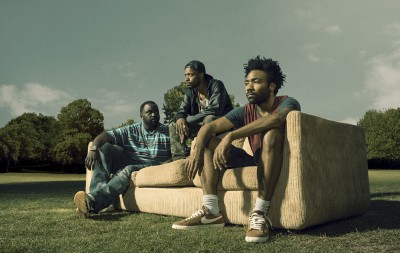
Donald Glover is the Renaissance man of the 21st century. With successful ventures into online skits, TV writing, acting and rapping, Glover now adds to the list with a new project: his own television show that combines all of his previous experiences into one. “Atlanta” tells the story of two cousins navigating the rap scene of Georgia’s capital. Through an excellent blend of drama, comedy and a hint of surrealism, FX Network’s “Atlanta” is without a doubt TV’s newest smash hit.
Glover plays Earnest “Earn” Marks, a college dropout who could use some direction in his life. From the beginning, it is shown that he lacks a certain level of commitment by being unable to sincerely tell his girlfriend that he loves her. However, it’s clear that Earn is a very caring father. “Atlanta” quickly establishes Earn as a deeply flawed but sympathetic character who the audience can root for to develop into a better man.
Earn is on the verge of homelessness when he discovers that his cousin, Alfred Miles (Brian Tyree Henry), an up-and-coming rapper known as Paper Boi, has recently been offered a $7 million signing deal. Earn sees this as an opportunity to become his cousin’s manager, a relationship that could be beneficial for both of them. However, Alfred is skeptical, and thinking that Earn just wants in on his newfound success, Alfred brushes him off.
Alfred’s character takes the artistic side while Earn’s character takes the commercial side. Their personalities, as well as their ideologies, begin to clash. At the beginning, it seems impossible that the men can reconcile their differences. But as the show goes on, it seems more and more likely that resolution is possible.
The comedic timing in “Atlanta” is impeccable. The chemistry between Earn, Alfred and their eccentric friend Darius (Keith Stanfield) creates some of the show’s best moments. Rather than hitting punchlines, the comedy flows naturally as a part of the conversation. It becomes less about making a scene funny, and more about listening to Glover’s impeccable writing. It’s easy to become immersed in the scene, seeming as though the characters are speaking without the fourth wall.
The show evokes an intimate feeling reminiscent of hanging out with friends and hashing out some crazy ideas.
“If you could use a rat as a phone, man, that’d be genius,” Darius says in one scene. “I mean that’s like five rats for every one person in New York alone. Everybody would have an affordable phone. Yeah man, I mean it’d be messy, but worth it.”
Character dynamics like these are one of the greatest strengths of “Atlanta.” The conversations are quirky and just the right kind of funny where quick quips and banter become instantly quotable.
“I was just wondering … can I measure your tree?” Darius asks in a later scene.
“Nah, not right now,” Earn’s father replies after a prolonged, confused pause.
The family dynamic is well handled and multifaceted. Not everyone wants to mooch off of Paper Boi’s success. In fact, Earn’s parents are rather critical of the lifestyle. There is another scene in particular where children are playing with toy guns because they want to be like Paper Boi, which gives Alfred some pause over what what example he’s setting. This diversified reaction makes things much more believable and allows the viewer to dive deeper into what characters are actually thinking.
All of this is complimented by a subtle sense of surrealism. There are characters and elements that are just a little too weird, and they later start to connect with even stranger things. The show throws in a dash of David Lynch-like surrealism with the rest of the show’s Richard Linklater-esque charm.
By drawing on his past experiences, Donald Glover is able to expertly craft one of TV’s most thought-provoking shows in a long time. A focus on the African-American experience feels genuine and refreshing amongst a sea of not-so-diverse shows. Glover has once again proven himself as a Renaissance man, by giving millions of fans a brand new experience to hold them over until the next Childish Gambino album drops.




